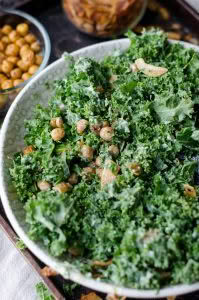Allergies & gut health
With summer just around the corner, we turned to Registered Nurse and Holistic Health Practitioner Sarah Vickers for some advice on allergies and how to keep them at bay.

Let’s break down allergies in simple terms. Your immune system’s job is to protect you from the bacteria, pathogens, viruses and crazy toxins in our environment that can make you sick. But sometimes, it gets a bit too enthusiastic and starts attacking harmless things like pollen, or certain foods. This overreaction causes what we call an allergy – sneezing, runny nose, weeping eyes.
How do we develop allergies?
The root cause comes down to your gut microbiome and how well this is functioning. A number of immune molecules are made in the gut which is why ensuring you have a healthy gut is so important! When we get intestinal permeability (leaky gut) our immune system can get confused by what is a true allergen, causing foods or even our own cell proteins to be catalysts. This is how complex diseases such as autoimmune disorders can begin.
5 things you can do to reduce allergies and support your gut microbiome
Maintain a Diverse and Balanced Diet
A diverse diet rich in fruits, vegetables, wholegrains and fermented foods can promote a healthy gut microbiota. This diversity supports the growth of beneficial bacteria that contribute to immune system regulation and tolerance.
Ideas of what you can add into your diet include …
- – Leafy Greens (kale, spinach)
- – Cruciferous Vegetables (cauliflower, cabbage, kale, garden cress, bok choy, broccoli)
- – Probiotic Foods (garlic, onions and bananas)
- – Probiotics (yoghurt, kefir and sauerkraut)
- – These foods can help maintain microbial balance and potentially reduce the risk of developing or exacerbating allergies.
Reduce Toxic Exposure
There are several ways you can do this:
- – Reduce Inflammatory Foods – Limit your intake of processed foods and excessive sugar. Think anything in a packet that has ingredients that you don’t recognise.
- – Reduce Alcohol Intake – This is a toxin to the body and loads your liver up which then impacts the body’s ability to clear out histamine.
- – Eat Organic or Spray-Free – This is something you can do wherever possible. Your local vege market is a good place to start, or even better, grow your own veges if you can.
Incorporate Probiotics
Probiotic supplements or foods containing live beneficial bacteria can help restore and maintain a healthy gut microbiota. Research suggests that certain probiotics may have a protective effect against allergies by promoting immune tolerance and enhancing gut barrier function. However, it is essential to select probiotics with well-documented strains and consult healthcare providers for personalised recommendations.
Probiotics that I love and use often:
- Spore-Based Biotics – Spores are highly resilient, dormant forms of bacteria that can withstand harsh conditions, including exposure to antibiotics. This resistance makes spore-forming probiotics more likely to survive the antibiotic treatment and reach the gut where they can exert their beneficial effects.
- BePure Two – This is a great broad-spectrum probiotic.
Improve Gut Barrier Function
Supporting gut barrier integrity is critical for preventing the translocation of allergens and pathogens. Strategies to improve gut barrier function include:
- – Consuming Nutrient-Rich Foods – Nutrients such as omega-3 fatty acids, zinc, and vitamins A and D play a role in maintaining gut health. Including these nutrients in the diet can support gut barrier function. These are foods like oily fish (salmon, sardines), leafy greens, avocado and flaxseeds.
- – Consuming Protein-Rich Foods – Amino acids (protein broken down) are so important for improving gut functions. I religiously use Mitchells Bone Broth Protein Powder; I add it to my smoothie each morning! Yum!
- – Gelatin is another great addition to your diet. Nutra Organics Gelatin is the one I use, adding it into a hot cacao or matcha in the morning.

Avoid Overuse of Antibiotics
Antibiotics can disrupt the gut microbiota, leading to dysbiosis. Overuse or misuse of antibiotics may impair the development of a healthy microbial community. Imagine your gut like a forest – you want lots of diversity in your forest: trees, shrubbery … which are crucial for immune system maturation and function. Limiting antibiotic use to necessary cases and considering alternatives when appropriate can help preserve gut microbiota diversity and support overall immune health.
Wānaka’s Sarah Vickers is passionate about offering a rounded, balanced approach to health. A Registered Nurse, Certified Integrative Nutrition Health Coach, Holistic Health Practitioner and Somatic Yin Yoga Teacher, she is dedicated to weaving together a scientistic and holistic approach to her patients’ wellbeing. svholistic.com



